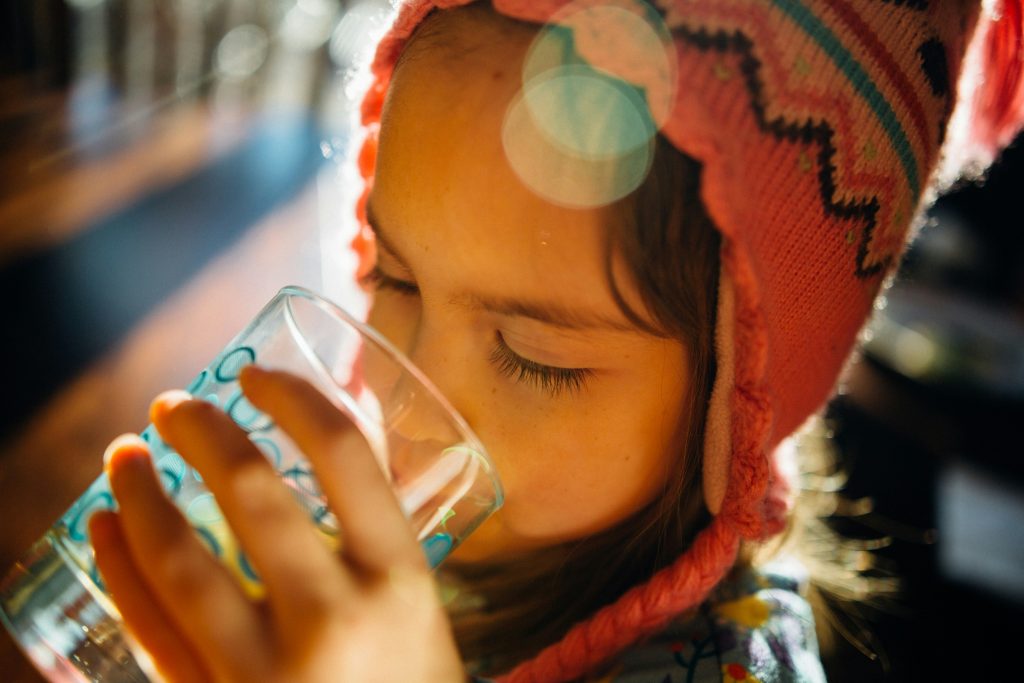Staying hydrated is crucial for maintaining overall health and well-being, yet many people struggle to drink enough water throughout the day. Adequate hydration supports everything from cognitive function and digestion to skin health and energy levels. This article will explore why hydration is key and provide actionable tips to help you drink more water daily. By implementing these strategies, you can ensure that your body stays hydrated and performs at its best.

Why Hydration is Key for Your Health
Water makes up about 60% of the human body, playing a vital role in almost every bodily function. From regulating body temperature to transporting nutrients, staying properly hydrated is essential. Dehydration, even in its mildest forms, can negatively impact physical performance, mental clarity, and mood. Understanding the importance of hydration and recognizing the signs of dehydration can help prevent these negative effects.
Key Benefits of Proper Hydration:
- Improves Physical Performance: Dehydration can cause fatigue, muscle cramps, and reduced endurance. Proper hydration helps maintain energy levels and supports optimal physical performance.
- Supports Cognitive Function: The brain relies on adequate hydration for focus, memory, and mental sharpness. Studies have shown that even mild dehydration can impair cognitive abilities (Masento et al., 2014).
- Promotes Digestive Health: Water is essential for healthy digestion and helps prevent issues like constipation by keeping the digestive tract functioning smoothly.
- Aids in Detoxification: Proper hydration supports kidney function, helping flush out toxins and waste products from the body.
Signs of Dehydration to Watch Out For:
- Dark yellow or amber-colored urine
- Persistent headaches
- Dry mouth and cracked lips
- Fatigue and dizziness
- Reduced physical and mental performance
How Much Water Should You Drink Daily?
The amount of water needed varies depending on factors such as age, gender, activity level, and climate. The general guideline from the National Academies of Sciences, Engineering, and Medicine recommends approximately:
- Men: About 3.7 liters (15.5 cups) of fluids per day.
- Women: About 2.7 liters (11.5 cups) of fluids per day.
Keep in Mind:
These amounts include all fluids consumed, including water, beverages, and moisture-rich foods like fruits and vegetables. While these guidelines provide a good starting point, listening to your body and adjusting your intake based on thirst, activity levels, and weather conditions is essential.
Practical Tips to Drink More Water Daily
1. Start Your Day with a Glass of Water
Begin each day by drinking a glass of water as soon as you wake up. This simple habit jumpstarts your hydration and helps compensate for the water your body used overnight.
2. Carry a Reusable Water Bottle
Keeping a water bottle with you throughout the day serves as a constant reminder to stay hydrated. Choose a bottle with time markers to encourage consistent intake, or opt for an insulated one to keep your water cool.
3. Set Hydration Goals
Set small, achievable goals, such as drinking a glass of water before each meal or finishing a certain amount by midday. Tracking your water intake with a hydration app can also help you stay on target.
4. Infuse Your Water for Better Flavor
If plain water doesn’t appeal to you, try adding natural flavors like lemon, cucumber, mint, or berries. Infused water is refreshing and makes staying hydrated more enjoyable without adding extra calories.
5. Eat Water-Rich Foods
Incorporate foods with high water content into your diet. Options like watermelon, cucumber, oranges, and strawberries contribute to your overall hydration.
6. Set Reminders
Use your phone or a smartwatch to set hourly reminders to take a few sips of water. Regular reminders can help establish a routine and prevent you from forgetting to hydrate throughout the day.
Common Myths About Hydration: Why Hydration is Key for Your Health
Myth 1: You Need to Drink 8 Glasses of Water a Day
The “8 glasses a day” rule is a generalized recommendation and doesn’t consider individual needs. Adjust your intake based on factors like climate, physical activity, and overall health.
Myth 2: Thirst is the Only Indicator of Dehydration
Thirst is not always a reliable indicator, as it can be delayed. By the time you feel thirsty, you may already be mildly dehydrated. It’s better to drink water consistently throughout the day, even when you’re not feeling thirsty.
Myth 3: All Fluids Count Equally
While most fluids contribute to hydration, caffeinated and sugary beverages may have diuretic effects, potentially reducing net hydration. Water should remain the primary source of fluids for optimal health.
Hydration and Exercise: What You Need to Know
Proper hydration is especially critical during physical activity. When you exercise, you lose water through sweat, and failing to replenish this loss can lead to dehydration, reduced performance, and even heat-related illnesses.
How to Stay Hydrated During Exercise:
- Pre-Hydrate: Drink water 2-3 hours before exercise to ensure your body starts fully hydrated.
- Sip Water Regularly: During exercise, sip water every 15-20 minutes, especially in hot or humid conditions.
- Replenish After Exercise: After your workout, drink water or an electrolyte beverage to replace lost fluids.
References:
- National Academies of Sciences, Engineering, and Medicine. (2020).Dietary Reference Intakes for Water. Available at: National Academies
- Masento, N. A., Golightly, M., Field, D. T., Butler, L. T., & van Reekum, C. M. (2014).Effects of hydration status on cognitive performance and mood. British Journal of Nutrition, 111(10), 1841-1852. Available at: Cambridge University Press
- Harvard T.H. Chan School of Public Health. (2023).The Nutrition Source: Water. Available at: Harvard T.H. Chan









